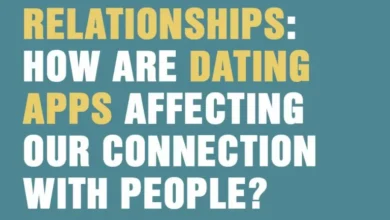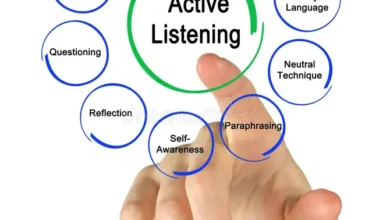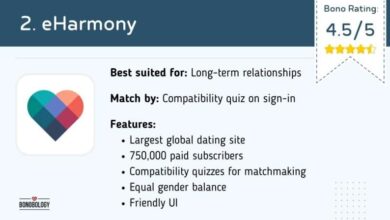Dating with Intention: Setting Relationship Goals and Expectations


Understanding Your Relationship Goals
Setting Relationship Goals for a Meaningful Connection
When it comes to setting relationship goals, it is important to establish a clear vision of what you want to achieve in a partnership. Whether it is building a strong emotional bond, enhancing communication, or working towards a shared future, defining these goals can help guide your relationship in a positive direction. By setting specific and achievable goals, individuals can create a roadmap for growth and development in their relationship.
Identifying Personal Values and Priorities
Understanding one’s personal values and priorities is essential in establishing relationship goals. By reflecting on what is truly important to them, individuals can align their goals with their core beliefs and aspirations. This self-awareness not only helps in cultivating a strong sense of identity but also fosters honest and open communication within a relationship. By recognizing and respecting each other’s values and priorities, partners can create a supportive and harmonious bond based on mutual understanding and appreciation.

Establishing Clear Expectations
Communicating Expectations in a Relationship
In order to foster a meaningful connection, **communication** of expectations is crucial within a relationship. Partners should openly discuss what they anticipate from each other to avoid misunderstandings and conflicts. By clearly expressing needs and desires, individuals can work towards fulfilling each other’s expectations and nurturing a healthy relationship.
Defining Boundaries and Dealbreakers
Setting boundaries and recognizing dealbreakers are vital components of any relationship. Partners need to establish what is acceptable and what isn’t, ensuring mutual respect and understanding. By defining these limits, individuals can create a safe and secure environment where both parties feel comfortable expressing their needs and concerns. **Respecting** each other’s boundaries is fundamental in building trust and maintaining a harmonious connection.

Importance of Self-Reflection
Self-Exploration for Healthy Dating Habits
When it comes to relationships, self-reflection plays a crucial role in cultivating healthy dating habits. By taking the time to understand one’s own needs, values, and expectations, individuals can approach dating with a clear sense of self-awareness. This self-exploration allows them to make informed choices about potential partners and set realistic boundaries that align with their personal goals and values.
Building Self-Confidence and Self-Awareness
Self-reflection also contributes to the development of self-confidence and self-awareness in relationships. By reflecting on past experiences and personal growth, individuals can gain a deeper understanding of themselves and their emotions. This heightened self-awareness empowers them to communicate effectively, express their needs assertively, and navigate relationship dynamics with authenticity and confidence. Ultimately, self-reflection serves as a foundation for building strong and fulfilling connections based on mutual respect and understanding.

Creating a Vision Board
Visualizing Your Ideal Relationship
When considering relationships, self-reflection emerges as a vital component in fostering healthy dating habits. It allows individuals to delve into their own desires, principles, and anticipations, enabling them to approach dating with a profound level of self-awareness. Through this introspection, informed decisions regarding potential partners can be made, and realistic boundaries that resonate with personal aspirations and values can be established.
Setting Long-Term and Short-Term Goals
Self-reflection further aids in nurturing self-confidence and self-awareness within relationships. Reflecting on previous encounters and personal evolution equips individuals with a deeper comprehension of themselves and their sentiments. This heightened sense of self-awareness empowers effective communication, assertive expression of needs, and adept navigation of relationship intricacies with genuineness and assurance. Ultimately, self-reflection acts as a cornerstone for establishing robust and gratifying connections founded on mutual regard and comprehension.

Effective Communication Skills
Active Listening and Empathetic Communication
When it comes to relationships, active listening and empathy play crucial roles in fostering understanding and connection. By truly listening to their partner’s words, tone, and body language, individuals can demonstrate genuine interest and care. Empathetic communication involves putting oneself in the other person’s shoes, acknowledging their emotions, and responding with compassion. These skills facilitate open, honest conversations that build trust and intimacy.
Expressing Needs and Concerns
Expressing needs and concerns in a relationship is essential for maintaining mutual respect and addressing issues effectively. By clearly articulating their desires and boundaries, individuals can ensure that their expectations are understood and respected. Furthermore, communicating concerns in a constructive and non-confrontational manner paves the way for collaborative problem-solving and strengthens the relationship. It is through open and respectful communication that partners can navigate challenges together and nurture a fulfilling connection.

Building Trust and Respect
Fostering Trust in a Relationship
When individuals aim to establish trust in a relationship, they must prioritize transparency and consistency in their words and actions. By being honest and reliable, partners can create a foundation of trust that withstands challenges and uncertainty. Trust is nurtured through mutual understanding and the fulfillment of promises, reinforcing the belief that each partner remains committed to the relationship’s well-being and growth.
Respecting Differences and Individuality
Respecting differences and individuality within a relationship is essential for promoting a sense of acceptance and equality. Each partner brings unique perspectives, preferences, and strengths to the partnership, enriching the connection through diversity. By valuing each other’s individuality and characteristics, individuals demonstrate respect and appreciation, creating a harmonious and inclusive environment for both partners to thrive and contribute positively.

Building Trust and Respect
Fostering Trust in a Relationship
When individuals strive to build trust in a relationship, they prioritize transparency and consistency in their words and actions. Being honest and dependable establishes a strong foundation of trust that can weather challenges. Mutual understanding and keeping promises reinforce the commitment to the relationship’s well-being and growth.
Respecting Differences and Individuality
Respecting differences and individuality within a relationship is crucial for fostering acceptance and equality. Each partner’s unique perspectives and strengths enhance the partnership. Valuing individuality demonstrates respect and creates an inclusive environment for both partners to thrive and contribute positively.
Nurturing Emotional Intimacy
Developing Emotional Connection and Intimacy
Building emotional connection and intimacy involves sharing feelings, experiences, and thoughts with openness. This deepens the bond and understanding between partners, fostering a sense of closeness and support.
Sharing Vulnerabilities and Feelings
Sharing vulnerabilities and feelings promotes emotional closeness and a sense of safety within the relationship. Being able to express oneself authentically and without judgment strengthens the emotional connection and intimacy between partners.

Building Trust and Respect
Fostering Trust in a Relationship
When individuals aim to build trust in a relationship, they prioritize transparency and consistency in their words and actions. Being honest and dependable establishes a strong foundation of trust that can withstand challenges. Mutual understanding and keeping promises reinforce the commitment to the relationship’s well-being and growth.
Respecting Differences and Individuality
Respecting differences and individuality within a relationship is essential for fostering acceptance and equality. Each partner’s unique perspectives and strengths enhance the partnership. Valuing individuality demonstrates respect and creates an inclusive environment for both partners to thrive and contribute positively.
Nurturing Emotional Intimacy
Developing Emotional Connection and Intimacy
Building emotional connection and intimacy involves sharing feelings, experiences, and thoughts with openness. This deepens the bond and understanding between partners, fostering a sense of closeness and support.
Sharing Vulnerabilities and Feelings
Sharing vulnerabilities and feelings promotes emotional closeness and a sense of safety within the relationship. Being able to express oneself authentically and without judgment strengthens the emotional connection and intimacy between partners.
Handling Challenges and Conflict Resolution
Managing Relationship Conflicts Constructively
Addressing challenges and conflict in a relationship requires a constructive approach that focuses on open communication and empathy. Working through disagreements with respect can strengthen the relationship and lead to a deeper understanding of each other’s perspectives.
Seeking Compromise and Resolution
Seeking compromise and resolution in conflicts allows both partners to find common ground and move forward together. By actively listening and finding mutually beneficial solutions, couples can navigate difficult situations while maintaining the bond and respect within the relationship.
:max_bytes(150000):strip_icc()/PeopleImages-3a80b06326a94f048024595e268b1a10.jpg)
Building Trust and Respect
Fostering Trust in a Relationship
When individuals strive to build trust in a relationship, they prioritize transparency and consistency in their words and actions. Being honest and dependable establishes a strong foundation of trust that can withstand challenges. Mutual understanding and keeping promises reinforce the commitment to the relationship’s well-being and growth.
Respecting Differences and Individuality
Respecting differences and individuality within a relationship is essential for fostering acceptance and equality. Each partner’s unique perspectives and strengths enhance the partnership. Valuing individuality demonstrates respect and creates an inclusive environment for both partners to thrive and contribute positively.
Nurturing Emotional Intimacy
Developing Emotional Connection and Intimacy
Building emotional connection and intimacy involves sharing feelings, experiences, and thoughts with openness. This deepens the bond and understanding between partners, fostering a sense of closeness and support.
Sharing Vulnerabilities and Feelings
Sharing vulnerabilities and feelings promotes emotional closeness and a sense of safety within the relationship. Being able to express oneself authentically and without judgment strengthens the emotional connection and intimacy between partners.
Handling Challenges and Conflict Resolution
Managing Relationship Conflicts Constructively
Addressing challenges and conflict in a relationship requires a constructive approach that focuses on open communication and empathy. Working through disagreements with respect can strengthen the relationship and lead to a deeper understanding of each other’s perspectives.
Seeking Compromise and Resolution
Seeking compromise and resolution in conflicts allows both partners to find common ground and move forward together. By actively listening and finding mutually beneficial solutions, couples can navigate difficult situations while maintaining the bond and respect within the relationship.




